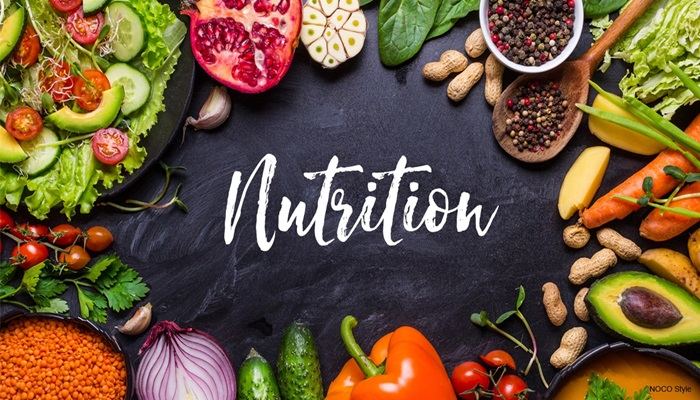A nutritious diet is not just about eating well; it’s about nurturing your body with the right nutrients that promote overall health and well-being. This article delves into why maintaining a balanced diet is crucial for leading a healthy life, exploring its benefits, preparation methods, and cultural significance. Whether you’re an experienced chef or someone looking to improve their eating habits, this guide will provide valuable insights into the importance of nutrition.
Introduction to Nutritious Diet
Introduction to Nutritious Diet: A nutritious diet consists of a variety of foods that provide essential nutrients needed for good health. It includes fruits, vegetables, whole grains, lean proteins, and healthy fats. Each food group contributes unique nutrients that support different bodily functions. Understanding the components of a nutritious diet can help you make informed choices about what you eat, leading to better health outcomes.
Benefits of a Nutritious Diet
Benefits of a Nutritious Diet: Eating a nutritious diet offers numerous benefits that enhance both physical and mental health:
Promotes Weight Management: A balanced diet helps maintain a healthy weight by providing adequate calories without excess fat and sugar.
Boosts Energy Levels: Nutrient-rich foods fuel the body efficiently, ensuring sustained energy throughout the day.
Supports Heart Health: Diets rich in fruits, vegetables, and whole grains reduce the risk of heart disease by lowering cholesterol levels and blood pressure.
Strengthens Immune System: Vitamins and minerals found in various foods bolster the immune system, protecting against illnesses.
Improves Mental Health: Certain nutrients like omega-3 fatty acids and B vitamins are linked to better cognitive function and reduced symptoms of depression.
Each benefit highlights the critical role that proper nutrition plays in our daily lives, underscoring the need for a balanced diet.
Essential Ingredients for a Nutritious Diet
Essential Ingredients for a Nutritious Diet: To create a nutritious meal, consider incorporating these ingredients:
- Fresh fruits
- Leafy green vegetables
- Whole grains (such as quinoa, brown rice)
- Lean proteins (chicken, fish, beans)
- Healthy fats (avocado, olive oil, nuts)
Each ingredient brings vital nutrients to the table. Fruits provide vitamins and antioxidants, vegetables offer fiber and minerals, whole grains deliver complex carbohydrates, lean proteins supply amino acids, and healthy fats contribute to cell function.
Preparing Nutritious Meals
Preparing Nutritious Meals: Cooking nutritious meals doesn’t have to be complicated. Here are some simple recipes that highlight the ingredients mentioned:
Quinoa Salad: Quinoa salad is a quick and easy dish packed with nutrients. Ingredients needed:
- 1 cup quinoa
- 2 cups water
- 1 cucumber, diced
- 1 bell pepper, diced
- 1 cup cherry tomatoes, halved
- 1/4 cup fresh parsley, chopped
- 1/4 cup olive oil
- Juice of 1 lemon
- Salt and pepper to taste
Rinse the quinoa under cold water. In a saucepan, combine the quinoa and water, bring to a boil, then simmer until the water is absorbed. Let it cool. Mix the cooled quinoa with the diced vegetables, parsley, olive oil, lemon juice, and seasonings. Toss everything together and serve chilled.
Grilled Chicken with Steamed Broccoli: This dish provides a perfect balance of protein and vegetables. Ingredients required:
- 2 chicken breasts
- Salt and pepper to taste
- Olive oil for grilling
- 1 head of broccoli, cut into florets
Season the chicken breasts with salt and pepper. Heat olive oil on a grill or grill pan and cook the chicken until thoroughly cooked. Steam the broccoli florets until tender. Serve the grilled chicken alongside the steamed broccoli for a wholesome meal.
Avocado Toast: Avocado toast is a trendy breakfast option that combines healthy fats with whole grains. Ingredients needed:
- 2 slices of whole-grain bread
- 1 ripe avocado
- Salt and pepper to taste
- Optional toppings (chia seeds, red pepper flakes)
Toast the bread slices. Mash the avocado in a bowl and spread it evenly over the toasted bread. Season with salt and pepper and add optional toppings for extra flavor.
Cultural Significance of Nutrition
Cultural Significance of Nutrition: Nutrition holds deep cultural roots, reflecting the traditions and values of different societies. In many cultures, food is more than sustenance; it’s a way to connect with family and community. For example, Mediterranean diets emphasize fresh produce, seafood, and olive oil, promoting longevity and heart health. Asian cuisines often incorporate a wide range of vegetables and herbs, supporting digestive health. By embracing nutritious eating habits, we honor these traditions and celebrate the diversity of global flavors.
Conclusion
In conclusion, a nutritious diet is fundamental to leading a healthy and fulfilling life. From promoting weight management and boosting energy levels to supporting heart health and strengthening the immune system, the benefits are undeniable. Incorporating essential ingredients into your meals ensures you receive a broad spectrum of nutrients necessary for optimal health. Preparing nutritious dishes can be simple and enjoyable, offering delicious ways to nourish your body. Culturally, nutrition connects us to heritage and community, enriching our lives through shared culinary experiences. Embracing a nutritious diet is an investment in your well-being, paving the way for a healthier, happier future.
Related topics:


